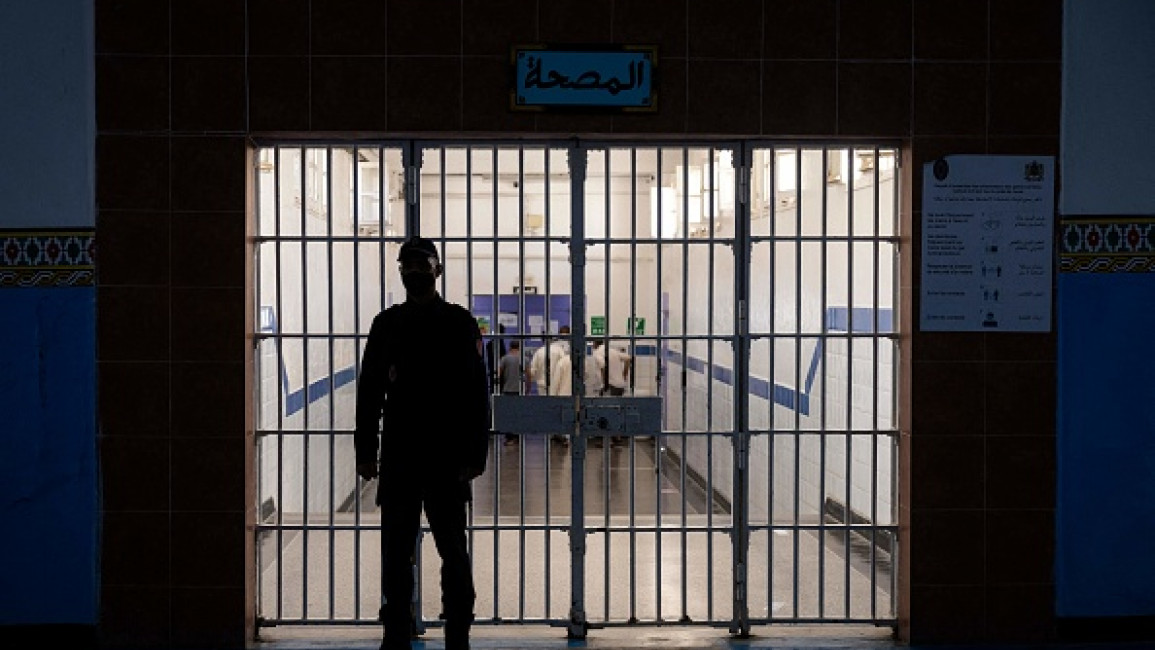Tunisian political prisoner Said Ferjani hospitalised after health episode, family says
The UK-based family of Tunisian political prisoner Said Ferjani has said the 68-year-old former MP and prominent Ennahda Movement figure was hospitalised after facing a health episode while in prison.
Ferjani’s daughter, Kaouther, said in a Facebook post on Tuesday that her father’s health condition “heavily deteriorated” late on Sunday, adding that he experienced “severe pain and recurrent acute bouts of dizziness” prompting his transfer to hospital.
At the hospital, Ferjani was given oxygen due to breathing difficulties, she said, adding that the pain reoccurred after he was returned to prison despite warnings that he may require “major surgery” if the symptoms persist.
Ferjani’s son, Seifeddine, told The New Arab that his father was transferred to hospital in prison transport instead of an ambulance despite the severity of his condition, which included episodes of vertigo and an irregular heartbeat.
“He remains quite poorly, and that’s due to various factors including record heat, overcrowding and poor conditions inside the prison,” Seifeddine Ferjani said, adding that he believed his father was targeted by prison authorities due to his previous political activism.
Said Ferjani only receives a break of 90 minutes per day during peak temperatures; it’s currently ~40 degrees Celsius in Sousse, Tunisia - making it near impossible for him to even utilise this break away from the worrying conditions inside 👇#FreeFerjani pic.twitter.com/DJiyCFtq86
— Free Said Ferjani (@FreeSaidFerjani) July 7, 2023
Ferjani’s family is one of several families of recently arrested Tunisian activists who have launched legal action against President Kais Saied and Interior Minister Taoufik Charfeddine at the International Criminal Court (ICC).
Seifeddine told The New Arab that the application was moving forward but urged the UK government to act to ensure the well-being of his father.
“We are trying to understand what the British government is doing vis-à-vis targeting individuals from the Tunisian government who are harming political prisoners and harming individuals like my father,” he said.
Seifeddine also highlighted that there was limited communication between his family and authorities in Tunisia.
“We cannot understand the severity of his illness right now, simply because we are not getting reports because we believe there is not enough pressure from the UK government to act,” he said, adding that family members are unable to travel to Tunisia due to fear of arrest or targeting.
“We believe the British government should be doing more because he is the grandfather and father of British citizens,” Seifeddine said.
Said Ferjani was arrested in February as part of a wave of arrests that has seen key judges, and top political opponents detained.
In 2021, Saied launched a power grab, sacking the country's prime minister and suspending Tunisia's democratically elected parliament.
Since then, he has imposed a new constitution granting himself near-dictatorial powers.
Prior to Saied's power-grab, Tunisia was seen as the only successful democracy to emerge from the Arab Spring wave of uprisings, which toppled dictators across the Middle East and North Africa.



